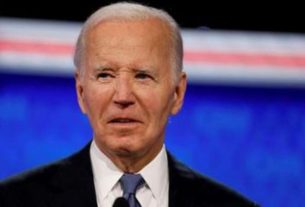34 dead,100 others in critical state after consuming toxic alcohol
At least 34 people have died and over 100 others have been taken to hospitals in India due to a batch of poisonous illicit alcohol, Tamil Nadu state officials told reporters on Thursday.
Chief Minister M.K. Stalin claimed that toxic methanol had been added to the lethal mixture of locally manufactured arrack drink, according to a news story from the Press Trust of India.
According to a statement from his office, Stalin declared that arrests had been made in connection with the fatalities and cautioned that such acts “
in shady distilleries claims hundreds of lives.
According to M.S. Prasanth, a senior government official in the state’s Kallakurichi district who was cited by Indian media, over 100 persons were hospitalized.
In a post on social media (X), state governor R.N. Ravi expressed his “deep shock” at the deaths and noted that “many more victims are in serious condition battling for (their) lives.”
Although alcohol is not prohibited in Tamil Nadu, it is less expensive to buy alcohol on the black market than it is to buy it officially.
In numerous other regions of India, it is illegal to sell or consume alcohol, which fuels the booming hidden market for strong and occasionally fatal backstreet liquor.
In the eastern Indian state of Bihar last year, poisoned drinks claimed the lives of at least 27 individuals in one sitting, and in Gujarat in 2022, at least 42 people died.
lowering the hardship associated with alcohol abuse
Governments can mitigate the negative effects of alcohol on health, safety, and socioeconomic issues by developing and enforcing suitable legislation.
It is recommended that policymakers implement measures that have demonstrated efficacy and affordability. Among them are:
controlling the promotion of alcoholic drinks, especially to children;
limiting and controlling alcohol supply; implementing suitable laws about driving after intoxication;
lowering demand by means of price and taxation;
bringing attention to the negative effects that excessive alcohol consumption has on one’s health and social issues, as well as those of society as a whole;
securing backing for efficacious alcohol regulations; offering treatment for alcohol-use problems that is both accessible and reasonably priced; and
putting in place screening and quick intervention programs for risky and dangerous drinking in health care.




